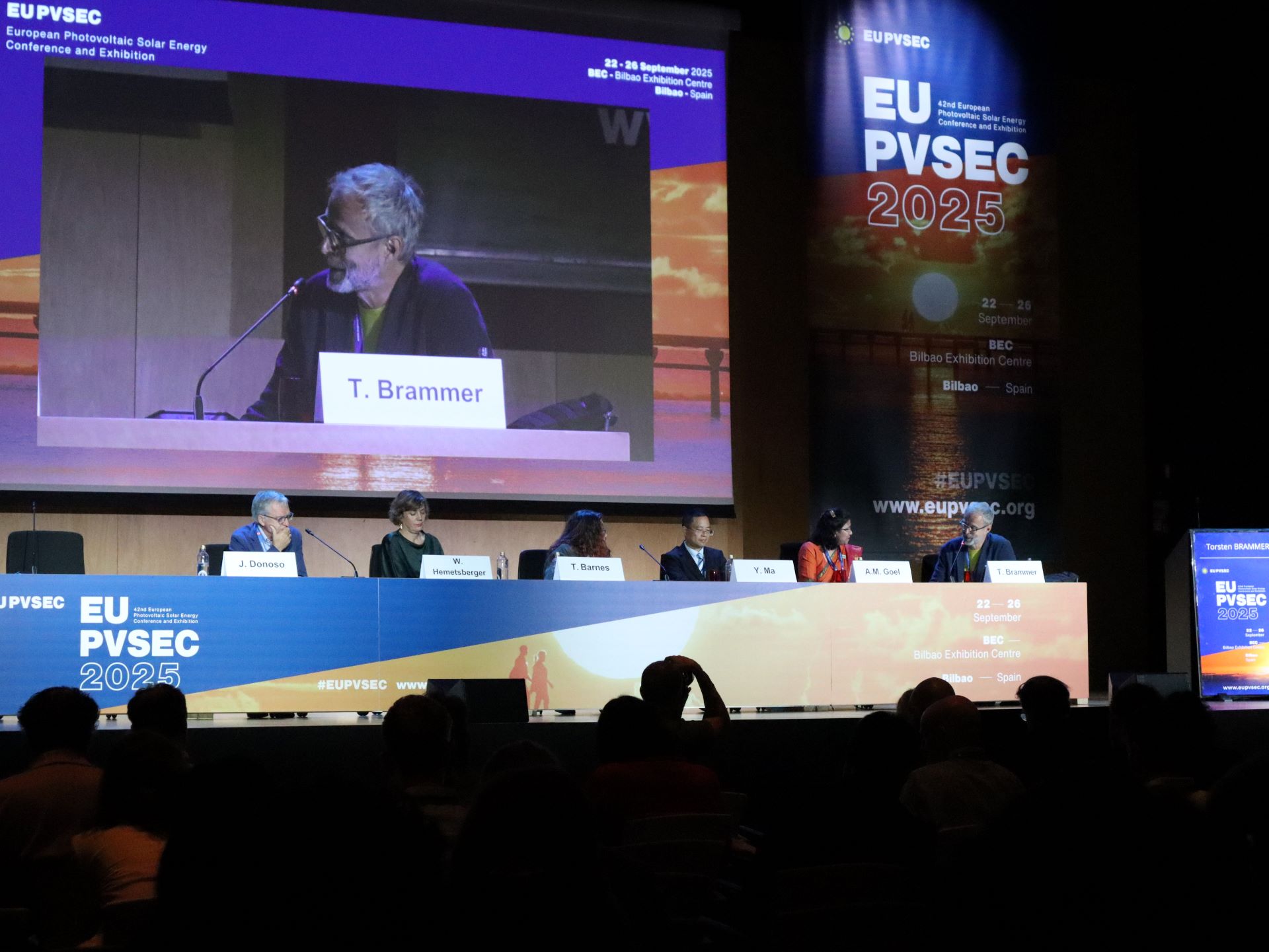Solar Power Momentum Faces New Challenges
Solar energy is advancing rapidly, yet stagnant demand and slow electrification risk undermining its full transformative potential.
Solar power is entering a new era of rapid innovation. In recent years, solar power generation has surpassed all expectations, reaching figures that suggest it could become the world’s number one source of electricity by 2030. However, new challenges are threatening its privileged position.
This was the core message of the opening session of the 2025 European Photovoltaic Solar Energy Conference and Exhibition (EU PVSEC) that took place in Bilbao, Spain, from 22–26 September. As the largest international conference and exhibition of photovoltaics (PV), it gathered people from across the globe working in solar, from PV plant managers to policymakers.

The opening session featured renowned figures from the solar industry, such as Gaëtan Masson, founder of the Becquerel Institute; Carlos del Cañizo, former director of the Solar Energy Institute at the Technical University of Madrid, and Walburga Hemetsberger, CEO of SolarPower Europe. Their interventions set the tone for the event by presenting a clear picture of the status of solar power today.
The photovoltaic sector has evolved rapidly, creating promising new opportunities as well as bringing new challenges. By 2030, it is expected that solar will represent 80% of the growth in global renewable capacity. Nevertheless, demand has not increased at the same pace as supply, which is affecting prices and the sustainability of businesses.
The European Union needs to increase the electricity demand in key sectors such as industry, transport and housing. The only way to achieve the goal is by speeding up the electrification process, which has stalled in the last five years, according to a report from Eurelectric. These efforts would also involve working toward the integration and stabilisation of the grid.
By 2030, it is expected that solar will represent 80% of the growth in global renewable capacity.
Furthermore, geopolitical factors are influencing solar developments, with energy security now playing a pivotal role. Specifically, the need to cut any reliance on Russian fossil fuels has put the EU under severe pressure. Today, the EU sees electrification as a pathway towards energy independence by consolidating a strong domestic supply and demand of renewables. To that end, it is essential to strengthen a European clean technology manufacturing industry.
The panorama presented at the EU PVSEC is in line with the priorities of the European Union, as set out in Ursula von der Leyen’s annual State of the Union address. The president of the European Commission clearly stated that the EU needs to boost power demand through electrification to achieve its energy transition and energy security goals. Among the proposed programmes, she announced a new Grids Package and an Energy Highways initiative to strengthen energy infrastructure and remove bottlenecks.
Walburga Hemetsberger, CEO of SolarPower Europe and winner of the 2025 Becquerel prize, in an interview with REVOLVE also highlighted the importance of solar power in ensuring energy security: “We will make sure we are not dependent on fossil imports and have a decentralised system that is more difficult to attack in war situations”, she said.
The EU needs to boost power demand through electrification to achieve its energy transition and energy security goals.
As the discussions in Bilbao made clear, solar power now stands at a decisive crossroads. The sector’s extraordinary progress has proven its capacity to transform global energy systems, yet its future success will depend on how swiftly Europe, and the world, can align policy, industry, and infrastructure to sustain that momentum. Accelerating electrification, reinforcing grids, and fostering a resilient clean-tech industry will determine whether solar power fulfils its promise.